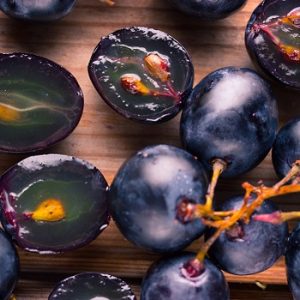
More evidence that low-calorie sweeteners are bad for your health
Studies show that artificial sweeteners can raise the risk of hypertension, metabolic syndrome, type 2 diabetes and heart disease, including stroke.

Natural Health News — Compounds derived from grapes may have the ability to help prevent colon cancer, by effectively killing colon cancer stem cells.
That’s good news given that colorectal cancer is the third most common cancer in the world. If the current rate of the disease continues it is estimated that by 2030 the number of people who contract it globally will rise by 60% to more than 2.2 million new cases – and the number of people who die from it annually will be 1.1 million.
With this in mind a team of researchers at Pennsylvania State University in State College, set out to examine the effects of grape compounds on colon cancer stem cells.
Specifically, the researchers tested the effect of a combination of resveratrol – a polyphenolic compound found in grapes, red wine, peanuts, and some berries – and grape seed extract.
“The combination of resveratrol and grape seed extract is very effective at killing colon cancer cells,” said lead researcher Jairam K. P. Vanamala, associate professor of food sciences at the College of Agricultural Sciences, who is also a faculty member at the Penn State Hershey Cancer Institute. “And what we’re learning is the combination of these compounds is not toxic to healthy cells.”
» Colon cancer is the third most common cancer in the world and it has a relatively high mortality rate.
» US researchers have found that a combination of compounds found naturally in grapes, specifically resveratrol and grape seed extract, can reduce the incidence of colon cancer by 50% in mice and in the lab, by killing cancer stem cells.
» The combination was more effective than either substance alone and the levels used were in line doses with currently available in over-the-counter supplements. Importantly the grape extracts were not toxic to healthy cells.
Stopping colon cancer before it starts
The researchers, who reported their findings in a recent issue of BMC Complementary and Alternative Medicine, suggest that the findings, which were in mice and in laboratory tests, could pave the way for human trials. If successful, a pill containing these compounds could to help prevent colon cancer and lessen the recurrence of the disease in colon cancer survivors.
“We are particularly interested in targeting stem cells because, according to cancer stem-cell theory, cancerous tumours are driven by cancer stem cells,” said Vanamala. “Cancer stem cells are capable of self-renewal, cellular differentiation and maintain their stem cell-like characteristics even after invasion and metastasis.”
For the animal study, the researchers separated 52 mice with colon cancer tumours into three groups, including a control group and groups. The animals were fed either the grape compounds or sulindac, an anti-inflammatory drug, which was chosen because a previous study showed it significantly reduced the number of tumours in humans.
The incidence of tumours was suppressed in the mice consuming the grape compounds alone by 50%, similar to the rate in the group consuming the diet with sulindac. But unlike the anti-inflammatory drug, the grape compounds did not cause any gastrointestinal toxicity.
Combined effects
When taken separately in low doses, resveratrol and grape seed extract are not as effective against cancer stem-cell suppression as when they are combined together, according to the researchers.
The combined effect of grape seed extract and resveratrol may offer clues as to why cultures with a plant-based diet tend to have lower colon cancer rates, said Vanamala.
These diets may provide a form of natural protection against cancer prevention by providing a wide variety of beneficial compounds to target multiple pathways that cancer stem cells use to survive.
“This also connects well with a plant-based diet that is structured so that the person is getting a little bit of different types of plants, of different parts of the plant and different colours of the plant,” said Vanamala. “This seems to be beneficial for not only promoting bacterial diversity, but also preventing chronic diseases and eliminating the colon cancer stem cells.”
The link to diet
Colorectal cancer is mainly a disease of developed countries with a Western culture. According to the World Cancer Research Fund (WCFR) about 54% cent of colorectal cancer cases occurred in more developed countries with the highest incidence in Oceania and Europe and the lowest incidence in Africa and Asia.
Indeed Nigeria, along with other African countries, has been shown to have the lowest cancer rates in the world which man y researchers believe is due to the traditional African diet.
WCRF studies have shown that meat based diets – especially if they include high levels of cured meats – are an important risk factor for the development of colorectal cancer, while other studies have shown s that a plant-based diet is protective.
A study in 2016 found that other plant based compounds found in turmeric and milk thistle were also protective against colon cancer.
The Pennsylvania State University researchers suggest that if the resveratrol and grape seed extract combination proves effective in humans, it could be taken in low doses using currently available supplements for grape seed extract and resveratrol, which are also found in wine.

Please subscribe me to your newsletter mailing list. I have read the
privacy statement